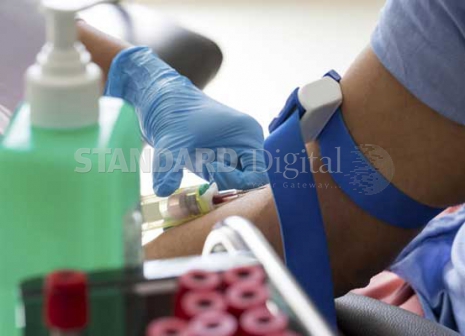×
The Standard e-Paper
Home To Bold Columnists

The Kenya National Blood Transfusion Service (KNBTS) is incensed by reports that part of blood its bank is contaminated with HIV and syphilis.
The report published three weeks ago in a foreign journal shows 6.2 per cent of donated blood had high levels of HIV, with as high as 15 per cent in some counties.